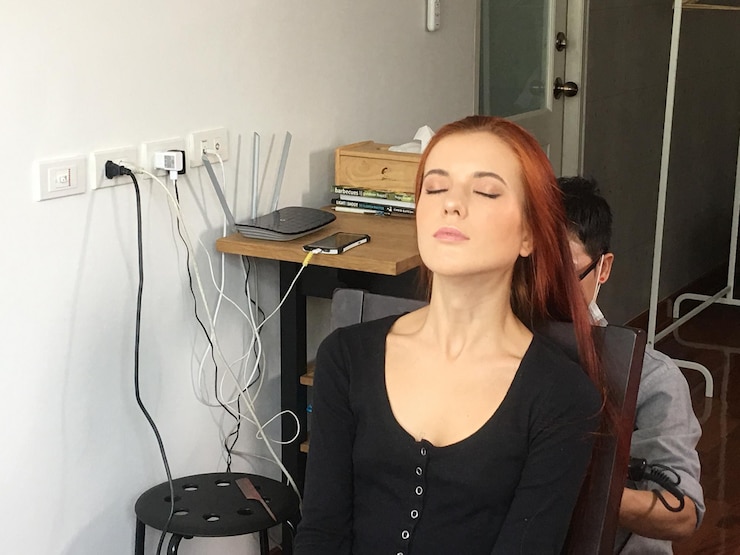Regain Balance Fast with Vestibular Therapy

Feeling off-balance, lightheaded, or dizzy can make even simple daily tasks feel overwhelming. Whether it’s standing up quickly, walking across a room, or turning your head suddenly, dizziness can strike without warning. Vestibular therapy offers a proven path to relief by addressing the root causes of these symptoms, helping people regain confidence and stability in their lives.
In this article, we’ll explore how this therapy works, who it helps, and why more individuals are turning to physical therapy for dizziness to restore their quality of life.
What Is Vestibular Therapy?
Vestibular therapy, also known as vestibular rehabilitation therapy (VRT), is a specialized form of physical therapy aimed at alleviating dizziness, vertigo, balance issues, and other symptoms tied to vestibular (inner ear) dysfunction.
It involves a customized treatment plan tailored to your specific condition, often including:
- Eye and head movement exercises
- Balance retraining
- Gait training
- Manual therapy
- Repositioning techniques (e.g., Epley maneuver for BPPV)
The goal is to help the brain adapt to changes in the vestibular system and use alternative strategies to maintain stability and orientation.
Common Conditions Vestibular Therapy Treats
Many conditions can disrupt your vestibular system. Here are some common ones that respond well to vestibular therapy:
1. Benign Paroxysmal Positional Vertigo (BPPV)
BPPV occurs when tiny calcium crystals in your inner ear become dislodged and interfere with balance. Vestibular therapy uses repositioning maneuvers to return these crystals to their proper place, providing rapid relief.
2. Vestibular Neuritis and Labyrinthitis
These viral infections cause inflammation of the vestibular nerve or inner ear, leading to sudden dizziness, nausea, and balance problems. Vestibular rehabilitation can help retrain the brain and restore balance over time.
3. Meniere’s Disease
Characterized by episodes of vertigo, hearing loss, and tinnitus, Meniere’s disease disrupts fluid balance in the inner ear. While not a cure, vestibular therapy can reduce the severity of dizziness symptoms.
4. Post-Concussion Syndrome
After a concussion, individuals often experience prolonged dizziness, blurred vision, or disorientation. Vestibular therapy addresses these issues through visual tracking, balance exercises, and gradual exposure.
Why Choose Vestibular Therapy for Dizziness?
When traditional medications don’t help or only offer temporary relief, vestibular therapy provides a long-term, evidence-based solution. It’s especially effective for those who suffer from chronic dizziness that disrupts daily routines or limits mobility.
Personalized Care
A trained vestibular therapist performs a comprehensive evaluation to determine the root cause of symptoms. From there, they develop a plan tailored to your condition, ensuring targeted and effective treatment.
Safe and Non-Invasive
Unlike surgical options or heavy medication, vestibular therapy is gentle, low-risk, and drug-free. It’s ideal for individuals of all ages, including seniors at risk of falling.
Fast Improvements
Many patients begin to see results within a few sessions, especially when exercises are done consistently at home. In fact, BPPV-related vertigo can often be resolved in just one or two visits.
What to Expect During Treatment
Your first appointment typically includes a full assessment of your balance, eye movements, posture, and coordination. Depending on the diagnosis, treatment may include:
- Gaze stabilization exercises to improve visual focus
- Habituation exercises to reduce sensitivity to motion
- Balance retraining to enhance coordination and confidence
- Manual therapy to address cervical spine issues or stiffness
The therapist will also provide a home exercise program to accelerate progress and reinforce gains between sessions.
If you’re struggling with inner-ear related symptoms, explore your options for dizziness treatment under expert clinical supervision.

Is Vestibular Therapy Right for You?
You might benefit from vestibular therapy if you experience:
- Frequent dizziness or vertigo
- Imbalance or unsteadiness
- Difficulty focusing or blurry vision when moving
- Motion sensitivity or nausea triggered by movement
- Difficulty walking or turning your head
The earlier you start therapy, the faster you’ll notice improvements. Left untreated, vestibular disorders can increase your risk of falls, limit mobility, and affect emotional well-being.
Conclusion
Dizziness and imbalance don’t have to be part of your everyday life. Vestibular therapy offers a safe, personalized, and highly effective path to regaining stability and confidence. By targeting the underlying causes of dizziness, it empowers individuals to reclaim their independence and move through life with ease.
Whether you’re dealing with a sudden bout of vertigo or ongoing balance problems, consider talking to a specialist about how vestibular therapy could help you get back on your feet.